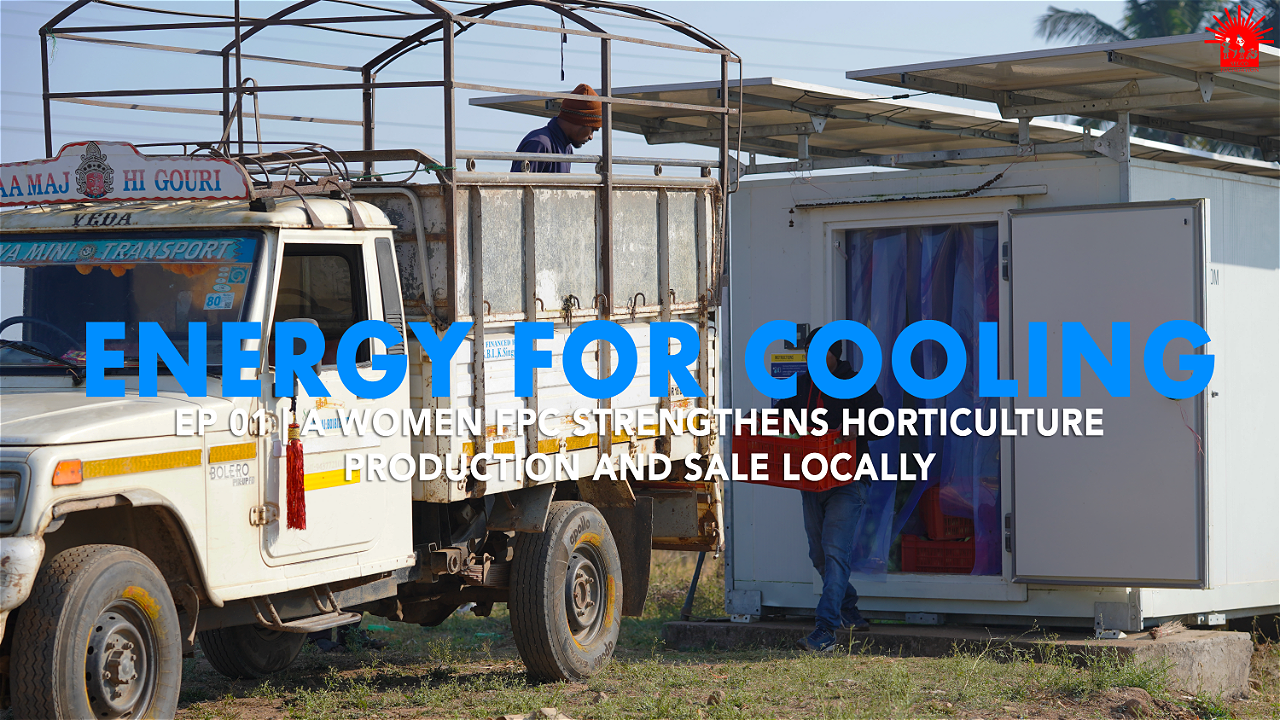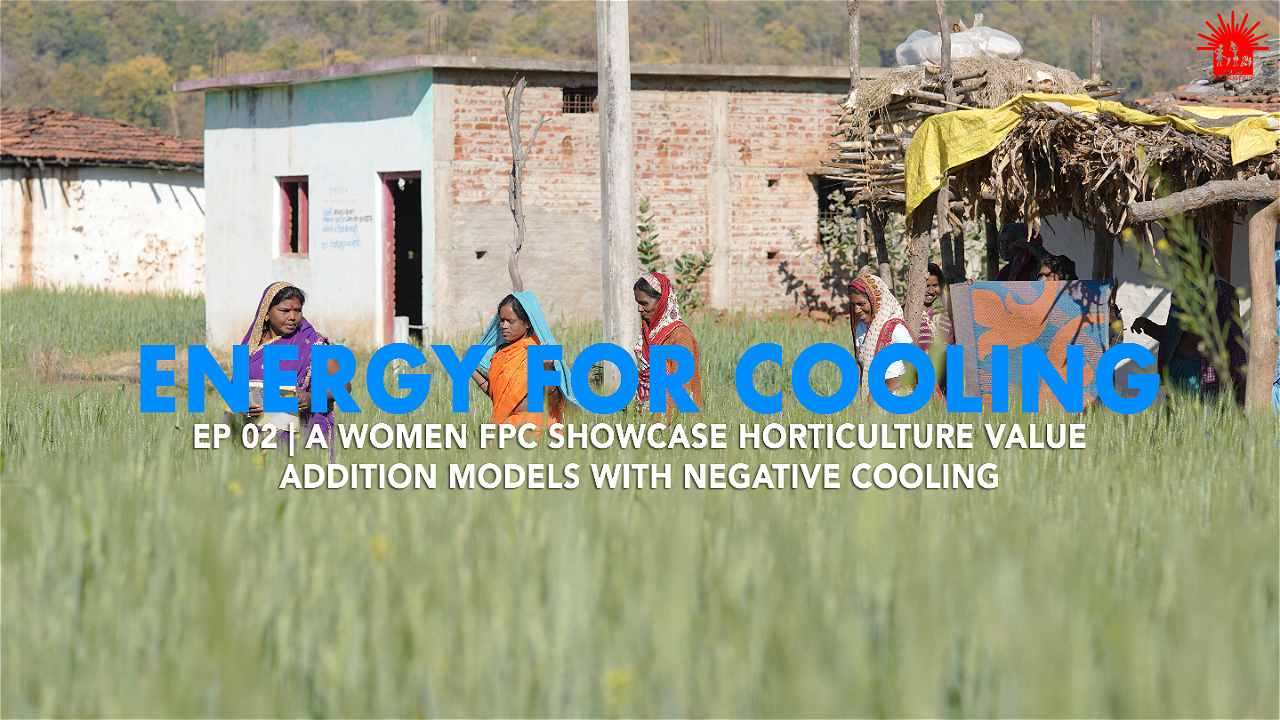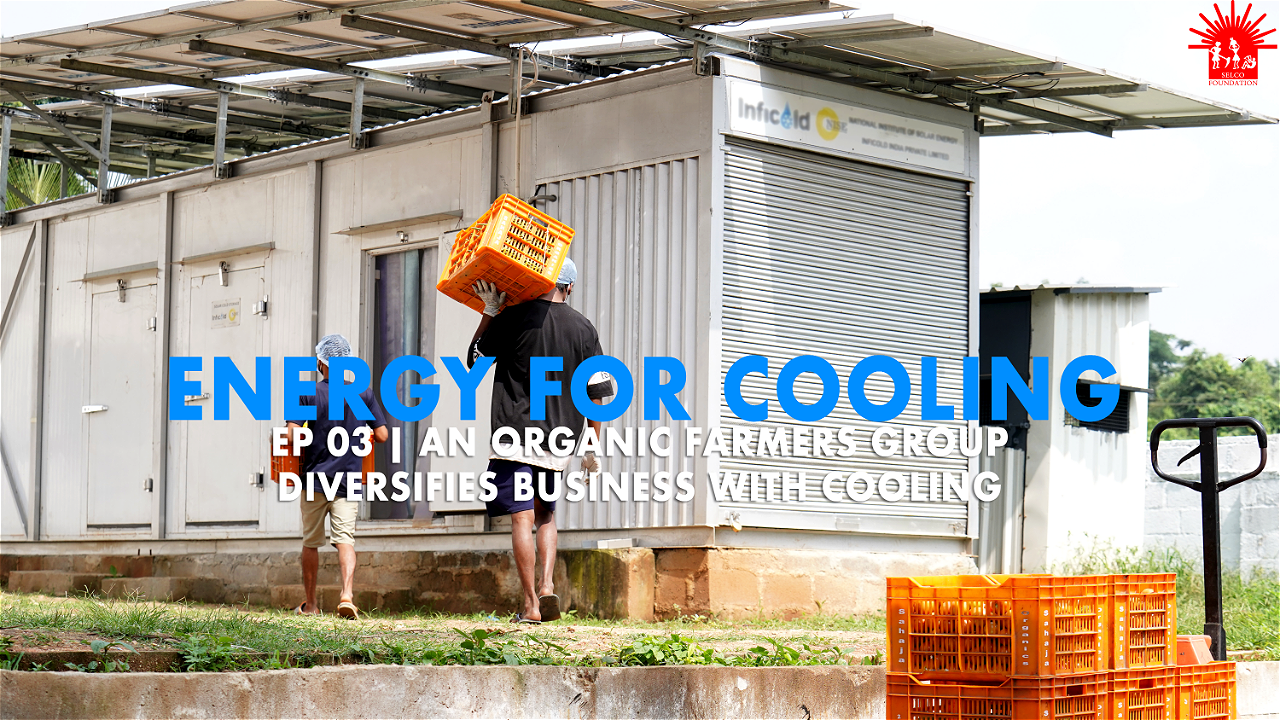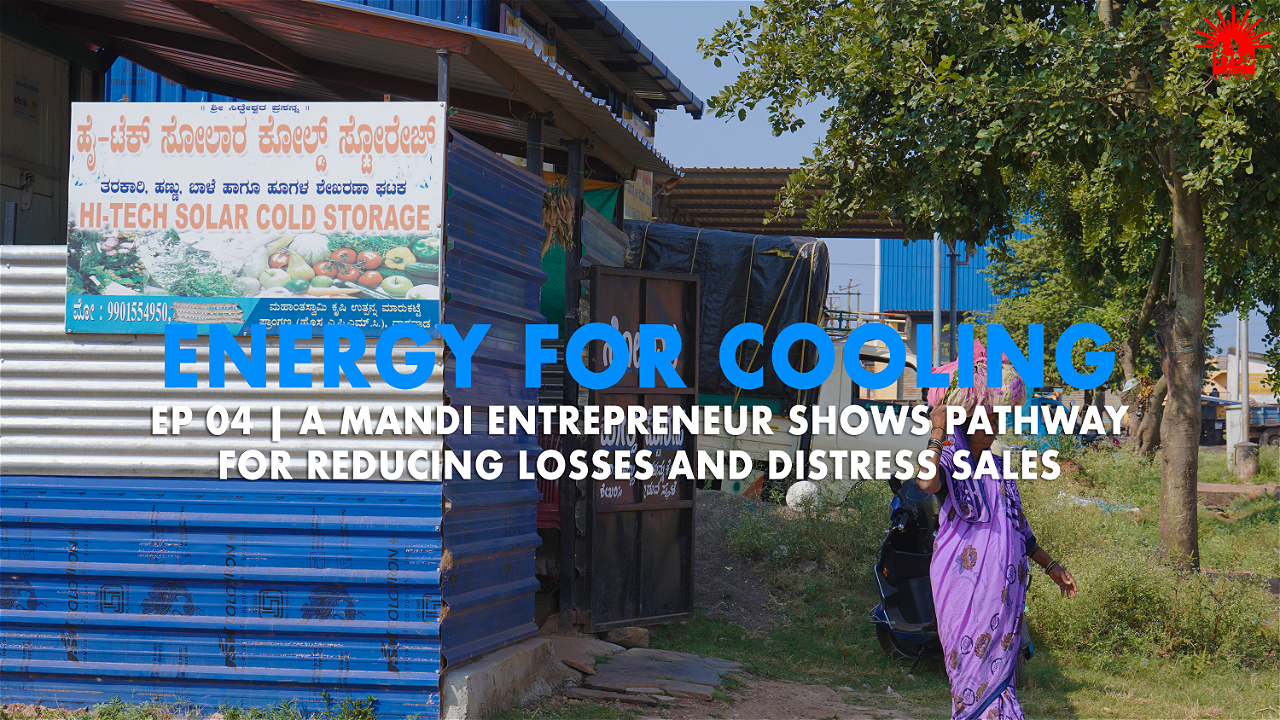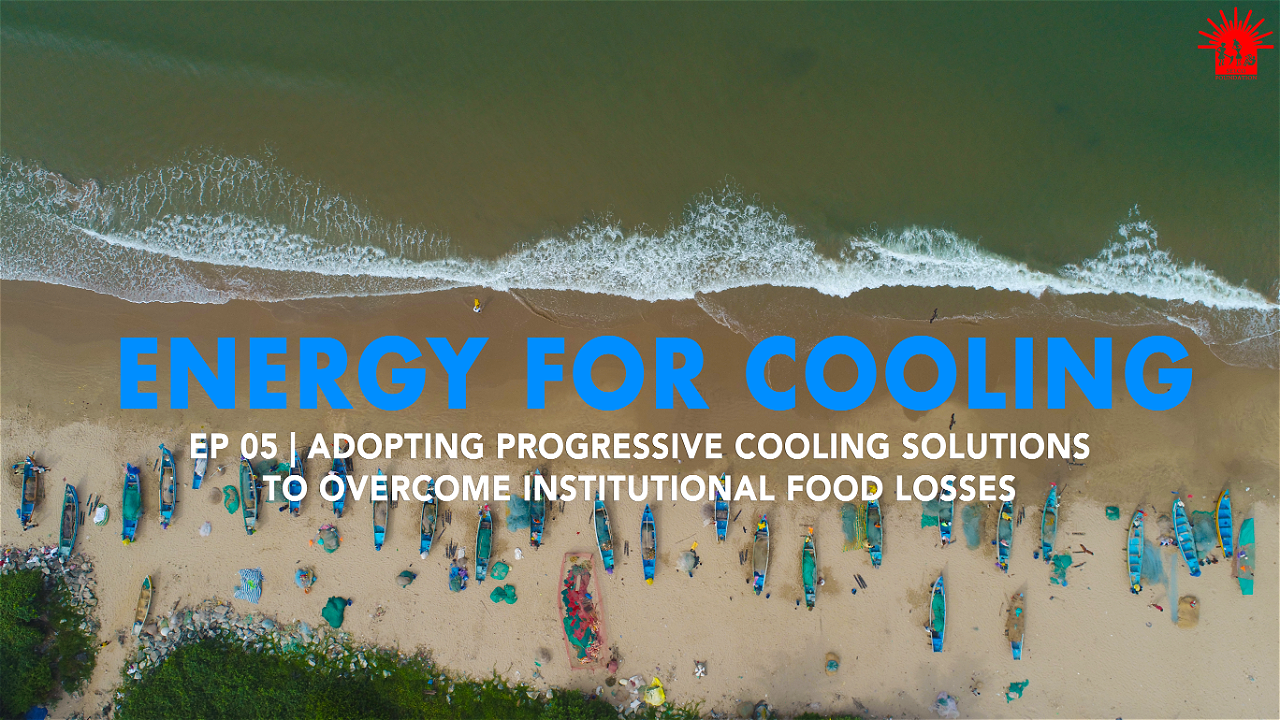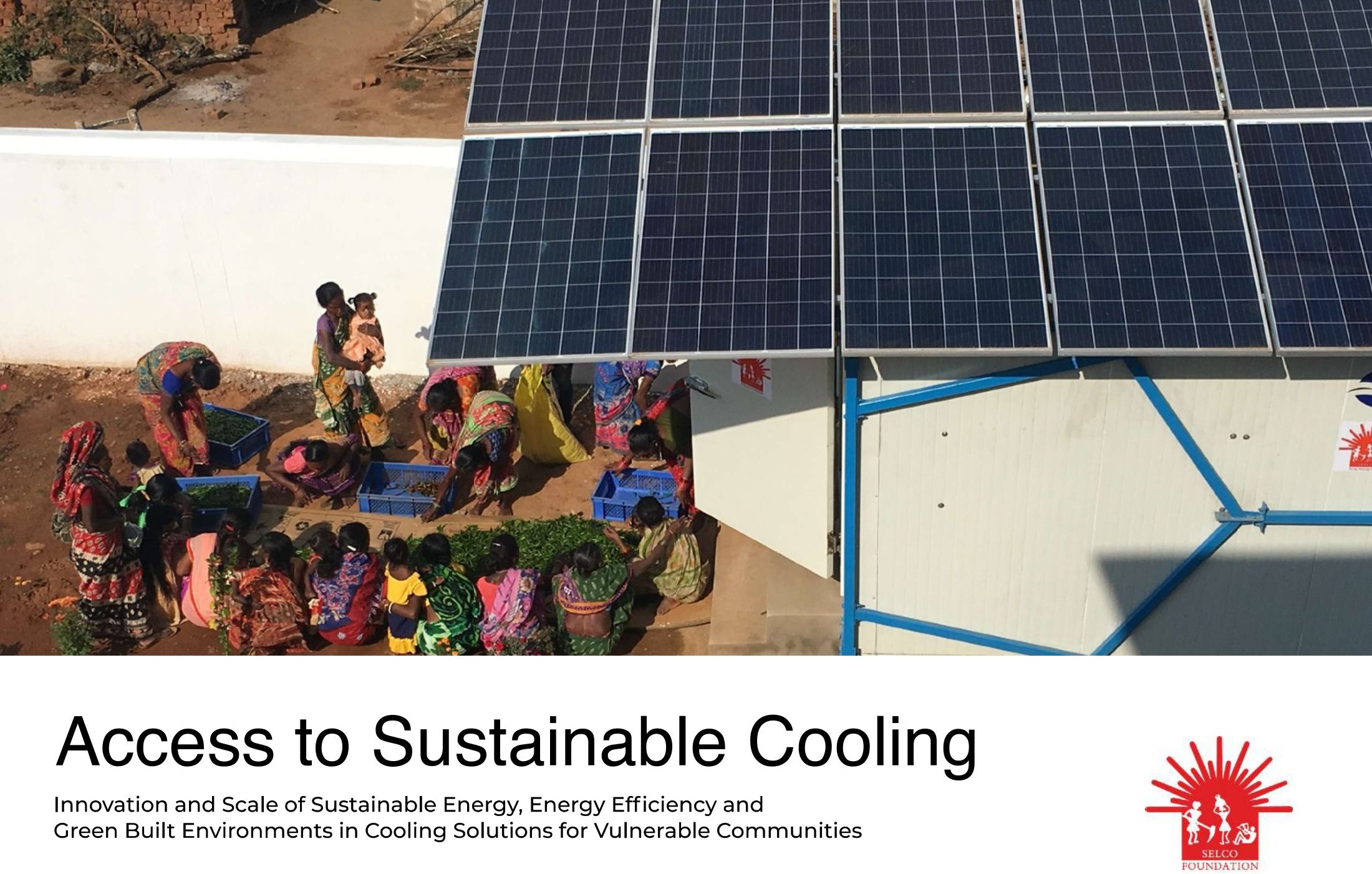ENERGY FOR COOLING
DISTRIBUTED COOLING FOR CLIMATE SMART AGRICULTURE

Climate change, farming communities and need for cold chains: Agriculture is a sector that is particularly vulnerable to climate change affecting the quality of the farmer’s produce and their ability to plan post-harvest processes and market linkages. Distress sales and food loss, wastage which also adversely impacts farmer incomes.
Food wastage because of a lack of cold storage:At a global level, food wastage (excluding land use change), has a carbon footprint of around 3.6 gigatonnes of CO2 equivalent per year. If it were a country, food waste would be the 3rd largest emitting country in the world. Within India, food losses were in the range of 4.85% to 15.88% in certain fruits and vegetables during harvest and transit.
Fossil-fuel powered cold chains and GHG emission implications: Reports suggest that food cold chains account for nearly 1% of CO2 emissions globally, albeit based on limited data. Reliable electricity supply is an underlying condition for the proper functioning of cold storage solutions. Combined with refrigerants with high global warming potential, this will contribute significantly to increasing GHG emissions and exacerbating climate change.
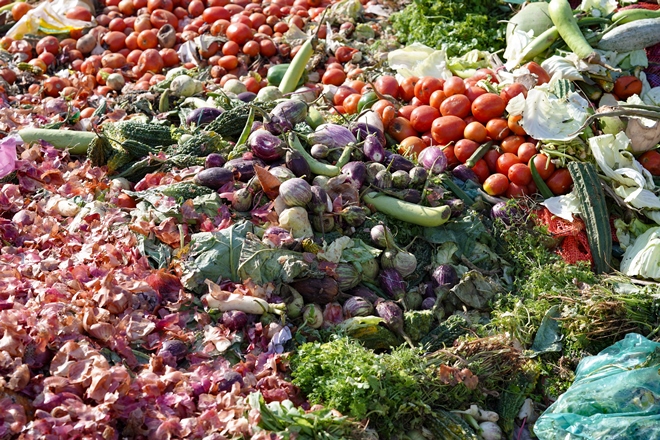
Teaser
×
